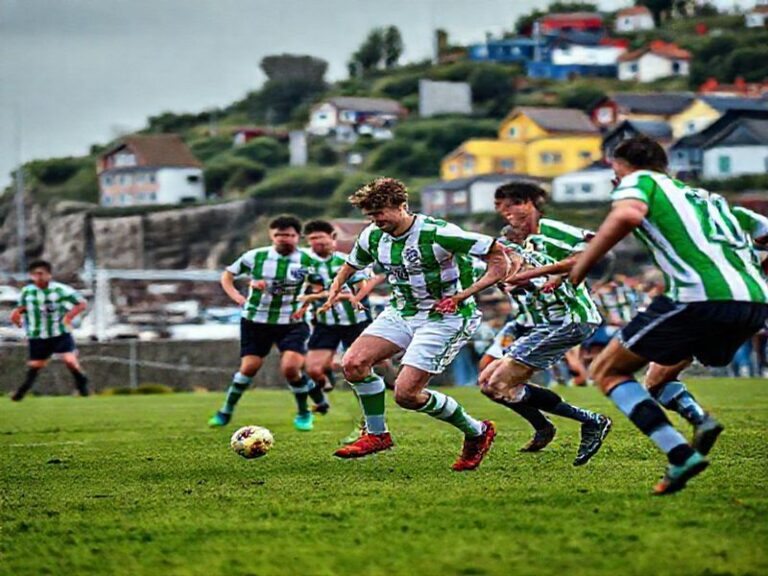Aitana Bonmatí: The Midfield Philosopher Making Dictators Sweat and Brands Swoon
From the moment Aitana Bonmatí lifted the Women’s Ballon d’Or last October—an award shaped suspiciously like a golden hamster wheel—she ceased being merely Spain’s best midfielder and became a global Rorschach test. To the corporate suites at Nike, she’s a scalable brand asset; to the Saudi Public Investment Fund, she’s an inconvenient reminder that some athletes still speak about human rights without first checking the wire transfer; to your cousin in Lagos streaming Barça Femení on a cracked phone screen at 2 a.m., she’s the closest thing left to uncorrupted excellence. Everyone projects; Bonmatí just keeps nutmegging reality.
Let’s zoom out. The planet is currently hosting 184 armed conflicts, a polycrisis that sounds like an aggressive brunch menu, yet FIFA insists on calling this the “Women’s Year Zero.” That’s not optimism—it’s marketing debt. Meanwhile, Bonmatí glides through defensive lines with the bored grace of someone who has already read next week’s headlines and found them derivative. When she says, “Football is universal, but justice isn’t,” she’s not delivering a Nike-approved sound bite; she’s issuing a quarterly report on the human condition.
Global implications? Start with the obvious: she plays for a club owned by socios but courted by venture-capital locusts circling Camp Nou like seagulls around a landfill. If the men’s side is the leveraged buy-out waiting to happen, the women’s side is the control experiment in what happens when you let talent, not spreadsheets, run the show. Bonmatí’s trophy haul (three Champions Leagues and counting) is the inconvenient data point every hedge-fund bro tries to bury under “market sentiment.”
Then there’s the geopolitical subplot. Spain’s federation imploded last year in a telenovela of non-consensual kisses and amateur-hour corruption. While the men’s team issued press releases that read like hostage statements, Bonmatí and her teammates went on strike—effectively holding the national sport for ransom until basic dignity was repackaged as policy. The ripple reached Buenos Aires fan clubs, Tokyo office towers, and Tunisian girls’ academies: if Spain’s golden generation can unionize against patriarchy, what’s your excuse?
Don’t overlook the tech angle. Bonmatí’s heat map looks like abstract art commissioned by an algorithm with abandonment issues. Every sprint is geotagged, every pass rated by machine-learning models that will someday decide whether you get health insurance. Yet the more data we harvest, the less we seem to understand her true value, which remains stubbornly analog: she slows time, tightropes chaos, and reminds the world that elegance can still be a weapon.
The cynical read—this is Dave’s Locker, after all—is that her brilliance merely oils the gears of late-capitalist spectacle. Every rainbow flick is clipped, monetized, and served back to us as #inspiration before the grass stains dry. Nike will drop a limited-edition boot in “Ballon d’Or Crimson,” priced at the monthly minimum wage of the factory that stitched it. Qatari broadcasters will loop her highlights between segments praising “progressive gender initiatives” while conveniently ignoring the kafala system. We’ll all watch, retweet, and feel vaguely complicit, like we’ve just attended a charity gala on the deck of a sinking cruise ship.
But here’s the kicker: Bonmatí appears to know the joke and still refuses to be the punchline. When asked about her legacy, she shrugs and mentions the solar panels she installed at her childhood club in Sant Pere de Ribes. Not because it’s photogenic, but because someone has to pay the invoice for the planet we’re burning down between fixtures. In a world where athletes trademark their own gestures, that shrug might be the most revolutionary act left.
So raise whatever beverage your local tax regime allows and toast the woman who turned midfield metronomy into geopolitical critique. The rest of us are still running in circles, chasing golden hamster wheels. She just keeps passing—forward, always forward—like someone who remembers the net is merely a destination, not the point of the game.







